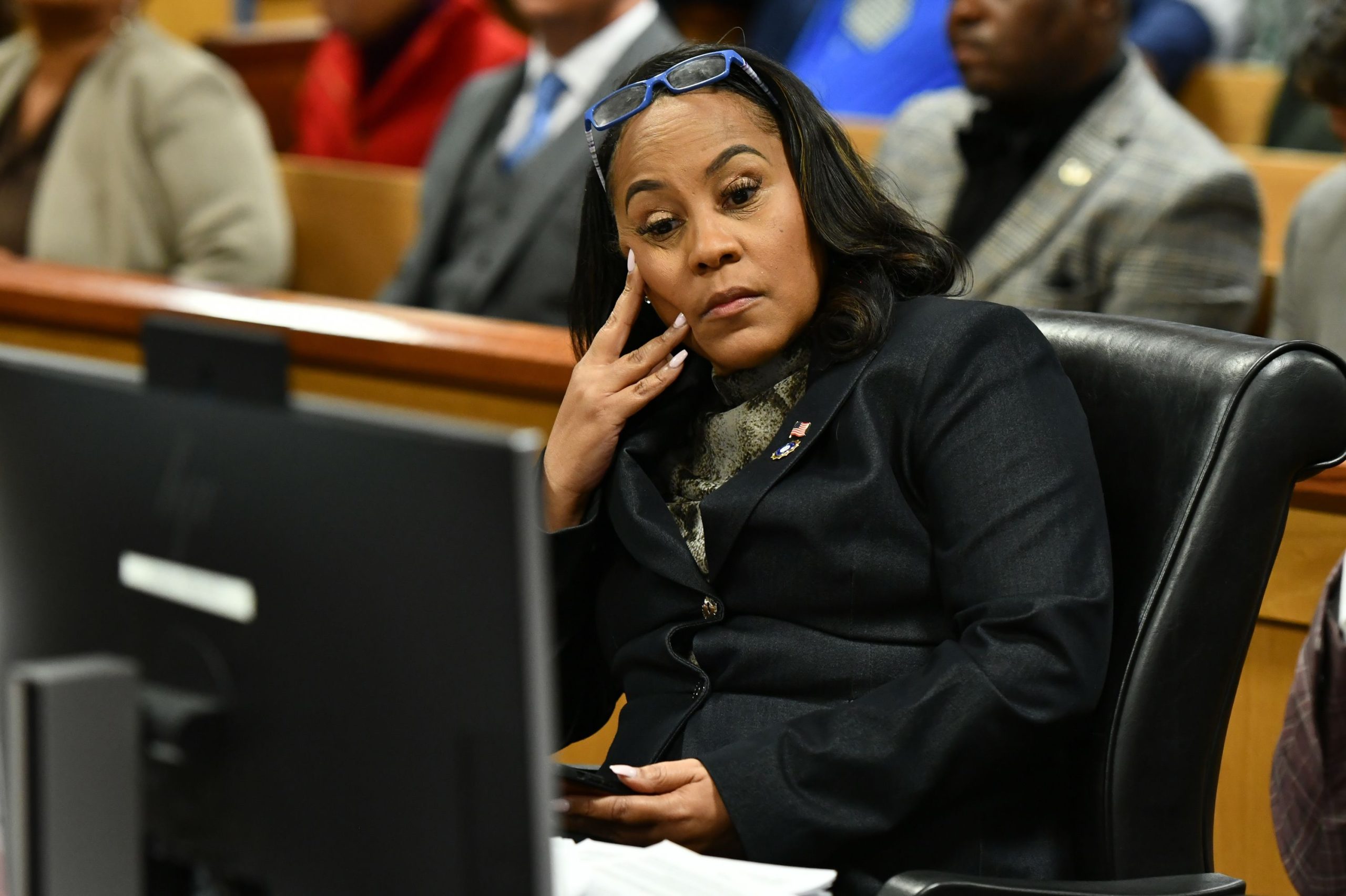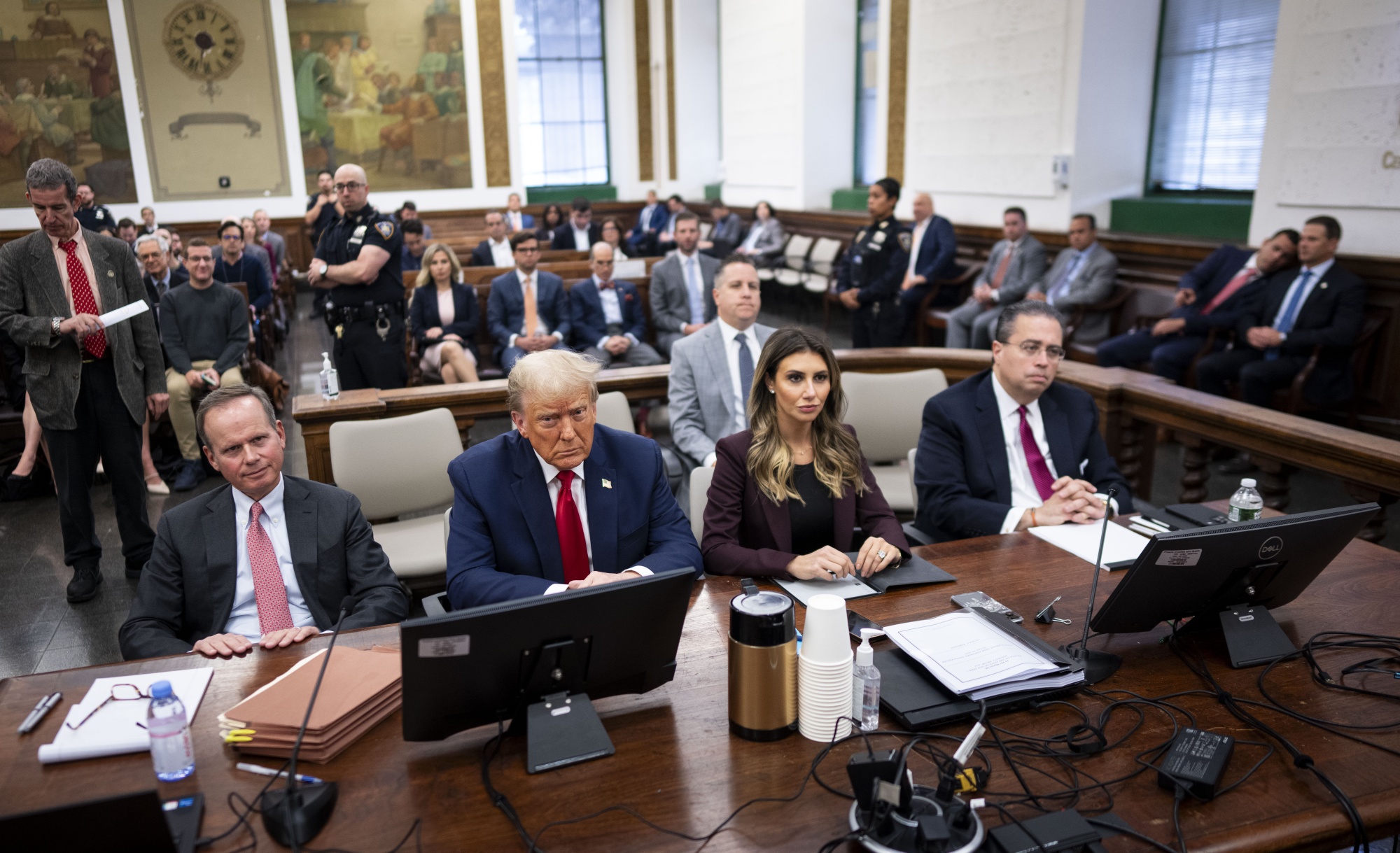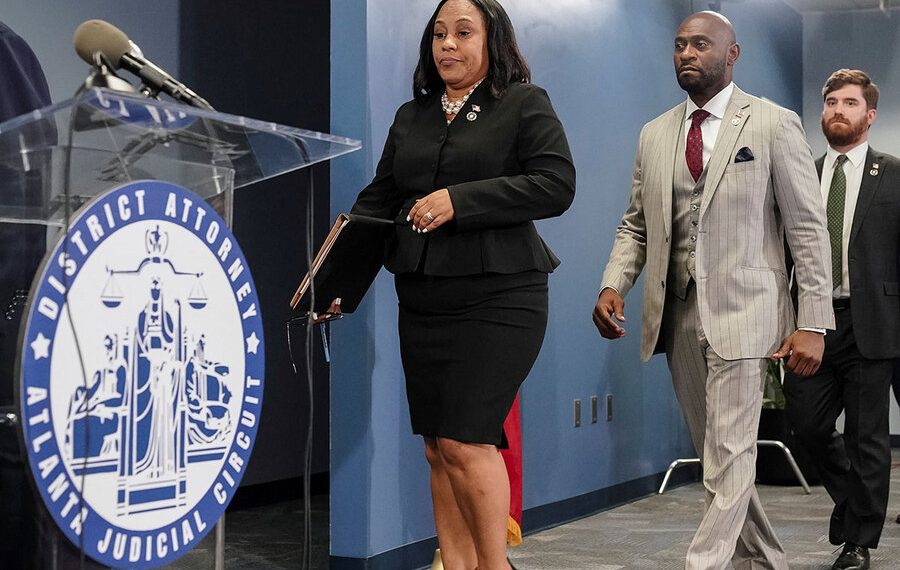Lawyers representing Donald Trump and other defendants in a legal case in Georgia have lodged an appeal to disqualify prosecutor Fani Willis, citing a judge’s previous remarks about “potential dishonesty” and an “odor of mendacity” after contentious testimony.
This move follows a recent ruling by Judge Scott McAfee, who allowed Willis to continue prosecuting Trump with the condition that her former partner, Nathan Wade, step down as special counsel, which he did.
The appeal emphasizes McAfee’s characterization of Willis’ actions as creating an appearance of impropriety and a lingering sense of dishonesty, despite the court’s decision not to disqualify her. Trump’s legal team argues for Willis’s complete disqualification, contending that this is necessary to uphold their due process rights.

They have filed their appeal with the state Appeals court, highlighting what they perceive as structural errors in McAfee’s ruling.
McAfee’s decision stems from a complex legal battle surrounding the alleged election interference by Trump and 18 codefendants.
While the judge acknowledged concerns about Willis’ judgment and professionalism, he ultimately allowed her to remain on the case, provided that Wade removed himself. The ruling carries significant implications for the defendants and the case’s trajectory.
The proceedings have been marked by dramatic hearings, featuring conflicting testimonies and revelations about the personal relationship between Willis and Wade.

Questions about the timing and nature of their affair have fueled controversy, with defense lawyers raising concerns about potential conflicts of interest.
Tensions persist, with Trump’s legal team expressing dissatisfaction and pledging to explore all available legal options.
The outcome of this legal battle will impact not only the defendants but also the broader political landscape, as it unfolds against the backdrop of Trump’s continued influence and the nation’s ongoing debates over electoral integrity and legal accountability.




